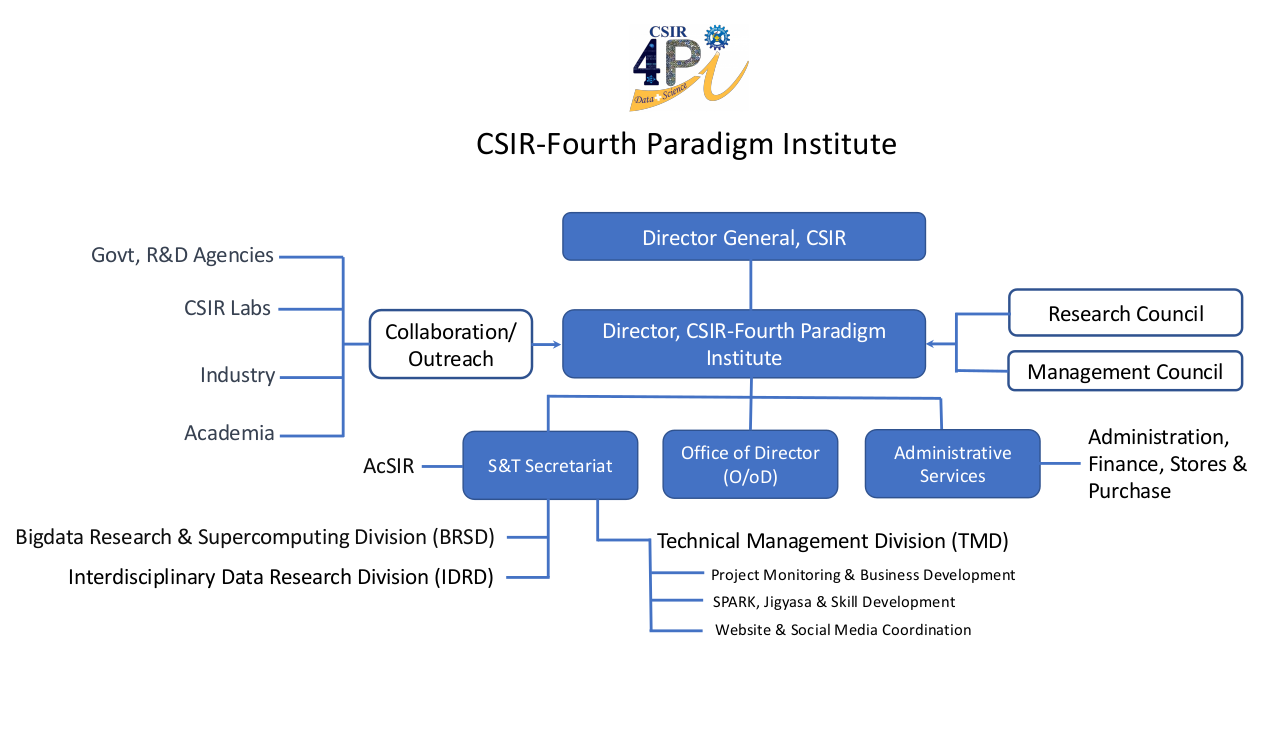Organisational Structure

CSIR Fourth Paradigm Institute
(Formerly CSIR Centre for Mathematical Modelling and Computer Simulation)
A constituent laboratory of Council of Scientific & Industrial Research (CSIR).
Chairperson
Smt. Nivruti Rai
Managing Director & CEO of Invest India
External Members
Prof. (Mrs.) Sagarika Mukhopadhyay
Professor,
Department of Earth Sciences
Indian Institute of Technology- Roorkee (lIT-Roorkee)
Commissioner
Karnataka State Natural Disaster Monitoring Centre (KSNDMC) and Commissioner
Karnataka Disaster Management Authority (KDMA),Bengaluru
Prof. R. Govindarajan
Professor
Supercomputer Education and Research Center (SERC) and Computer science and Automation (CSA)
Indian Institute of Science (IISc), Bengaluru
Dr. R Krishnan
Director
Indian Institute of Tropical Meteorology, Pune
Secretary MoES or his nominee
Dr. T Srinivasa Kumar
Director
Indian National Centre for Ocean Information Services (INCOIS), Hyderabad or his nominee
DG Nominee
Dr. Atul Narayan Vaidya
Director
CSIR-National Environmental Engineering Research Institute (CSIR-NEERI), Nagpur
Sister Laboratory
Dr. Abhay A Pashilkar
Director
CSIR-National Aerospace Laboratories, Bengaluru
Director/Head of concerned Lab/Institute
Dr. Sridevi Jade
Head
CSIR-Fourth Paradigm Institute
CSIR Hqrs. Invitee
Dr. Abhishek Kumar
Senior Scientist
Central Planning Directorate (CPD),
Council of Scientific & Industrial Research, New Delhi

Dr G K Patra
Director, CSIR-4PI
CSIR Fourth Paradigm Institute (CSIR-4PI), NAL Belur Campus, Bangalore-560037, India
Phone: (+91) 80-25224667, 25051921 and Fax: (+91) 80-25220392
email: This email address is being protected from spambots. You need JavaScript enabled to view it.
Dr G K Patra took charge as the Director of the CSIR Fourth Paradigm institute on 10th June, 2025, FN.